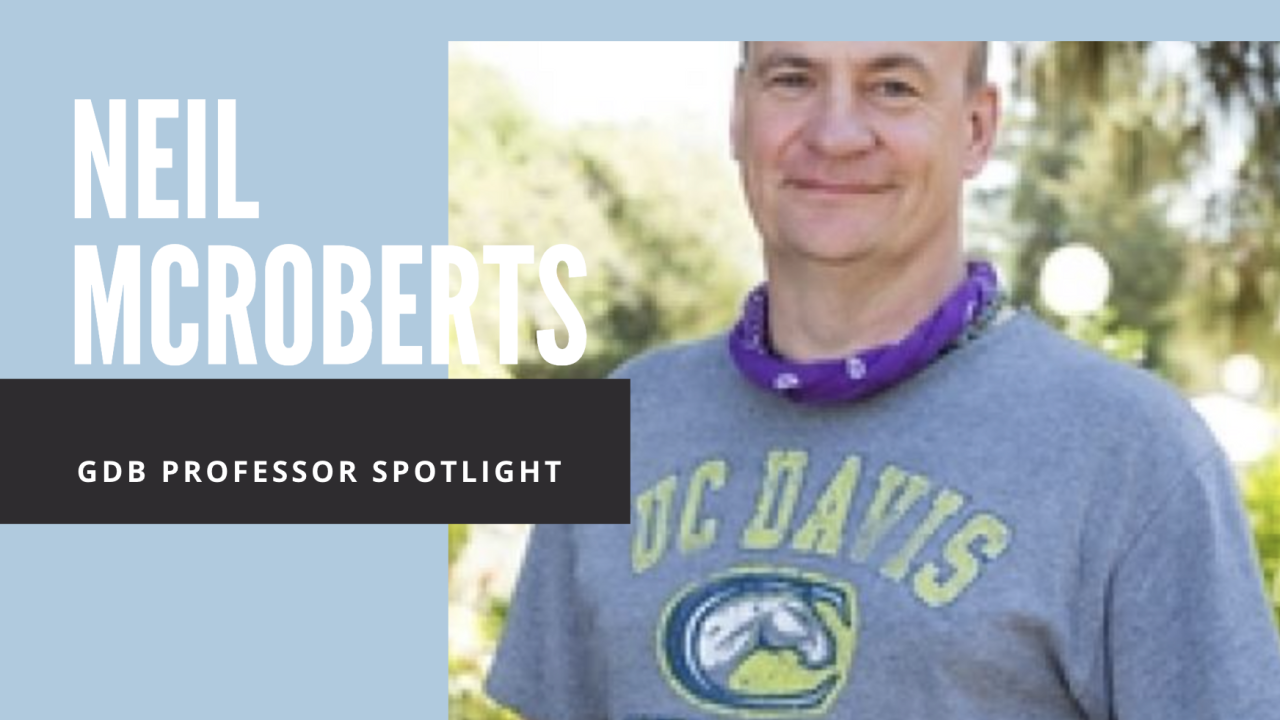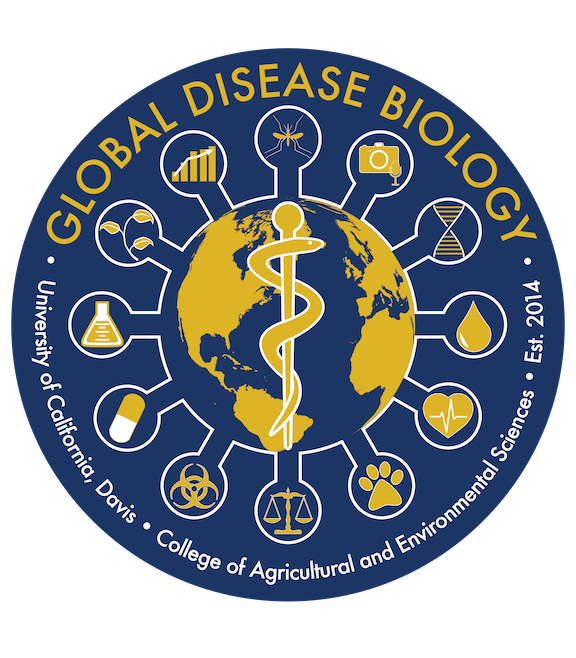
Professor Spotlight, Winter 2021: Neil McRoberts
Dr. Neil McRoberts is a professor of the Plant Pathology Department at UC Davis, teaching both upper-division Epidemiology (GDB 101) for undergraduates and a graduate class in plant disease management and quantitative biology/statistics/statistical analysis in R. He is the Director of the Western Plant Diagnostic Network and studies the interaction between plant diseases and the other components of agricultural and natural plant communities.
How did you decide to study Plant Pathology?
It's down to my High School biology teachers. One of them was just a lovely guy who treated us like human beings and encouraged us to be ourselves. The other was a Ph.D. plant pathologist who had decided to become a teacher. When it came time for him to cover "the fungi" in the biology syllabus of our O-grades (exams we sit at age 15-16) he prepared some barley leaf epidermal peels and stained them to show is Erysiphe graminis haustoria in the leaf. I was hooked. He helped me choose which Universities to apply to and which subjects to study to make sure I got there and train to become a plant pathologist.
How have your past experiences prepared you for working at UC Davis/ Did you have any other jobs?
Before coming to Davis I was a researcher/teacher at the national agriculture college in Scotland for about 20 years. I worked on plant disease epidemiology, but also lots of policy-related projects about sustainability and the relationship between agriculture and the environment. It was great training for becoming an interdisciplinary scientist - which is what I've tried to bring to Davis.
What about teaching at UC Davis do you love?
I love how engaged the students are with their world. When I talk to students about questions arising from course work it always seems that I end up hearing about all the other stuff that they do - volunteering, community work, and so on. I know it's a bit of a cliche but it makes me feel hopeful about the future - and that makes me really happy!
How have you adapted your course this past year to the online environment?
I'm lucky. Epidemiology translates pretty easily to online teaching because a lot of it involves playing with data or sitting thinking about how processes work... and both of those things are just as possible at home as they are in a classroom. That aspect of teaching has worked pretty well, I think, but the thing that has really become clear is just that one of the most important things I can do right now is be a friendly, kind, and supportive presence. Class time has become more of an opportunity to be a mentor than it used to be - the three or four times a week when I fire up Zoom for class, I hope the class sees them as anchor points of a calm - a welcoming place where they can come along and learn epidemiology, but also get some social interaction and support.
Besides being a professor, what are some outside hobbies that you enjoy right now?
I play guitar in the evening for relaxation (strictly for my own benefit - I just noodle away quietly no thought of performances). I'm working on a sculpture/installation thing (not sure what it is really) based on an interesting piece of Eucalyptus from a tree that I had to cut down because it died from drought/beetle damage.
What would students be surprised to find out about you?
I write poetry (my English teacher was really disappointed that I decided to study biology, not literature—he wanted me to be an English professor), and I hate goat's cheese.
The best piece of advice anyone has given you?
Don't pay too much attention to boundaries between "-ologies", read what you want and get good at what interests you - you'll be useful to someone.
